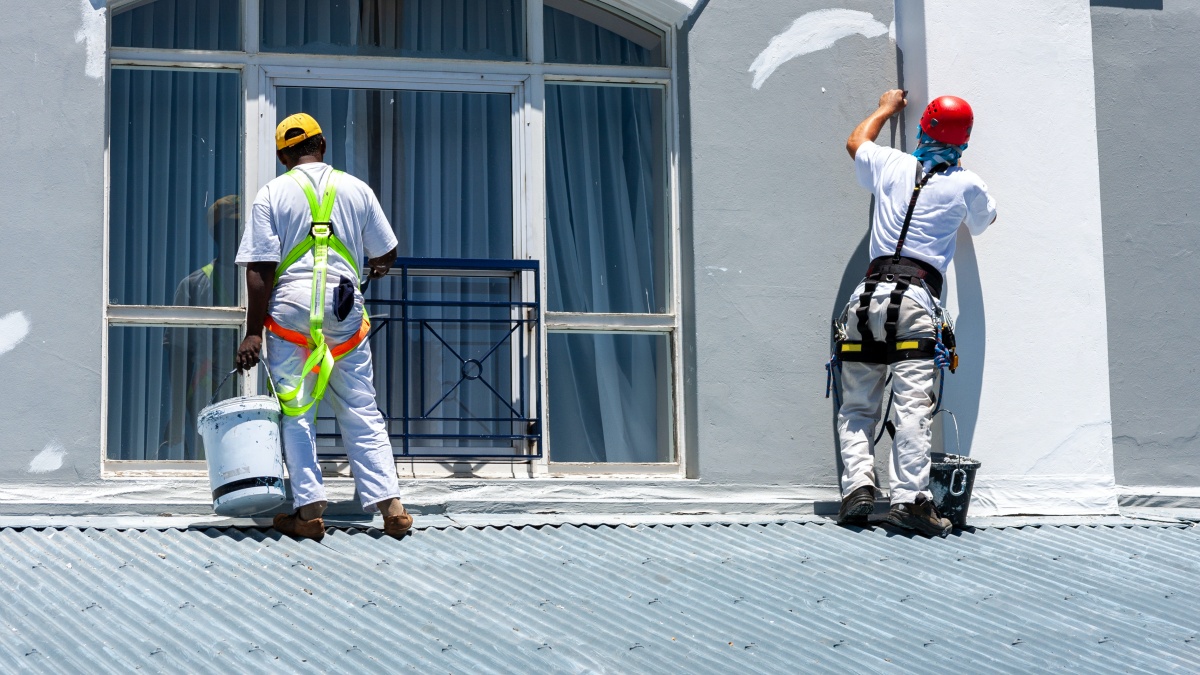The Different Types of Commercial Painting

For commercial spaces like professional offices, retail stores, hospitals, and manufacturing plants, specialized painters offer services meeting unique durability, aesthetic, and regulatory needs beyond residential painting. Understanding major classifications helps select ideal solutions.
Architectural Coatings Protect Large Structures
Architectural coatings include specialized paint products protecting exterior building facades from weathering degradation caused by sun, wind, and rain exposure over decades. Both solvent and water-based formulations maintain long-term facade integrity and curb appeal.
Industrial Paints Withstand Heavy Use
Heavy manufacturing environments leverage thick epoxy-based industrial paint coatings providing extreme durability, stain/chemical resistance, and reflective brightness for effectively illuminating expansive warehouse floors or workshop spaces seeing abusive daily use without deterioration over years of wear. Cleanability rates prominently on specs.
Anti-Corrosive Paint Systems Deter Rust
Extreme anti-corrosive paint coating systems are necessary for maintaining the structural integrity of metal infrastructure like bridges, petroleum tanks, or maritime vessels facing constant environmental exposure bringing corrosion risk. Multi-layer coating processes optimize life span dramatically relative to costs if properly applied following intricate specifications by skilled experts familiar with the niche discipline.
Textured and Decorative Paint Finishes
Beyond basic color coating for walls/ceilings, a range of decorative paint finish techniques brings aesthetic appeal to commercial spaces - including glazing, ragging/sponging, and texturing using joint compound or plaster to generate depth. Murals and faux finishes also qualify provided artists possess business licensing.
Floor Coatings Provide Hardiness
Specialized floor paint coatings give an aesthetic facelift along with amplified hardness tolerating sustained foot traffic commonly encountered in retail spaces or institutional hallways while still facilitating weekly commercial floor cleaning regimens. Slip resistance and quick drying also rank highly on the priorities list when selecting appropriate products.
Waterproofing Sealants Prevent Leaks
While not paints technically, commercial painters also frequently apply essential industrial-grade sealants and waterproof protective membrane coatings necessary for weatherizing rooftops, basements, foundations, and infrastructure preventing costly moisture penetration leading to decay or dangerous mold taking root in overlooked cracks or untended seams if left vulnerable.
Meeting Legal Requirements Around Volatiles
Regulations exist limiting allowable volatile organic compound content within various paint product categories to combat air quality impacts, particularly relating to commercial painters conducting large-scale jobs potentially releasing substantial quantities of vapors into surrounding communities. Expect tightened future mandates.
Understanding distinguishing capabilities, structural roles, and regulatory considerations surrounding commercial paint systems allows intelligently approaching necessary maintenance painting or improvement projects within organizations aiming to balance durability, aesthetics, and compliance over time as buildings age.

